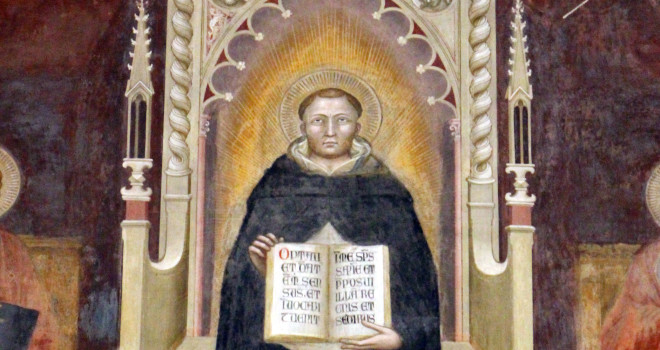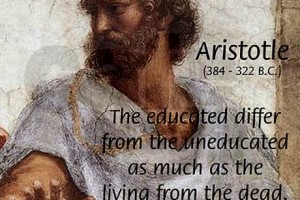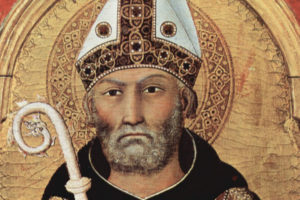In Plato’s Gorgias, the character Callicles argues that morality is a device of the weak masses to limit the power of the truly strong who are their natural superiors. In this we get a ‘might makes right,’ ethic and is in a sense a proto-Nietzsche or Raskolnikov (from Dostoyevsky’s Crime and Punishment). Callicles, who is an orator and who has no time for useless philosophy, does not care about truth, or nature, or the right and the good. Whereas Socrates (and Plato), as you would expect, is driven by his convictions that are grounded in something other than might and oratory, that being metaphysics.
This is a real nice story, and maybe even fascinating to some, but what does this ancient story have to do with us today? It is my sense that over the last few hundred years we have been slowly indoctrinated to Callicles’ position without really knowing it. But our adherence to a Calliclian (or Nietzschian) world-view has not strictly taken the form of might makes right with regard to one strong group of people over another weaker group, but also with regard to how the practice of natural science relates to the natural world. This has worked itself out in a number of ways, but what I would like to investigate briefly in this blog is how it has effected our perspective of the virtues and science. At the heart of this blog, and essentially what I am attempting to articulate, is why I think that doing the hard work of utilizing Thomas Aquinas’ view of the virtues when thinking about virtue ethics and the practice of science, may be a better way to go than to simply draw upon virtues that were named and developed inside of scientific practice after the early modern period.
For Aquinas, and that philosophical and theological tradition in which he draws, the virtues are intrinsically tied up in the transcendentals (see Disputed Questions on Truth, I 1; Summa Theologiae, I 15) and in created nature. Aquinas is concerned with what a person is and how a person relates to the created order and to their ideal archetypes in the divine mind. Great care is given to a theological anthropology and ethics that extends beyond what is observable to something that we strive for beyond ourselves. In this way Aquinas resembles Plato and Augustine, and not just Aristotle.
But what happens after Aquinas is an interesting tale, and one that has been the center of much debate over the last few decades, that is, how is Aquinas adopted by his predecessors. One meta-narrative asserts that late medieval interpretations of Aquinas, for instance Duns Scotus, William of Ockham and Francisco Suarez, are too Aristotelian leaving behind the Augustinian presence in Aquinas’ thought. Leading into the early modern period, the transcendental emphasis is forgotten and ethics gets separated from metaphysics. After the early modern period the method of thinking about the human person, and thus, nature changed. We impose, rather than contemplate; we manipulate rather than imagine. This is why someone like Francis Bacon can make the comment, “nature had to be hounded and made a slave to the new mechanicized devices; science had to torture nature’s secrets out of her.” Related to the above, conceptions of the virtues no longer extend from anthropology.
This relates to my earlier claim about Callicles’ view of the world creeping into our cultural consciousness because virtues are no longer tied to the created order and the divine archetypes. This means that when it comes to virtues anything goes. One can anoint anything a virtue and habituate characteristics in accordance with said ‘virtue.’ One example in the case of Adam Smith is that ‘greed’ can be a virtue that benefits the social whole.
So what is the point of all this? In our conversations, the Virtues and the Practice of Science team have been discussing which virtues should take center stage in our empirical study. Myself and the other theologian, both have argued for the virtue tradition that includes the way that Thomas Aquinas has set out his virtues over using strictly post early modern and enlightenment conceptions of virtue.
It would be a much easier task to simply adopt those scientific virtues that are discussed in the literature after the enlightenment. For the most part is seems like the values of scientists have not changed much in the last hundred years (though my colleagues, who know far more about this than I, might disagree). Why should we care so much about Aquinas, or any ancient, patristic or medieval thinker for that matter?
I believe that this traditional view of virtue has certain advantages. The virtues as Aquinas lays them out have broad application that extend into every part of life. They are not specific to any particular vocation, or tradition or people group. It is my opinion that because this view of virtue cared so much about the relationship between theology, metaphysics and ethics that this wide application of virtues is possible. The wide and extensive application and ubiquitousness of the virtue of prudence is a good example here as it is central not just in our vocations but in everyday life. Aquinas is particularly great for this project because of his analytical precision in discussions of virtue, while also keeping a keen eye on the tradition. Secondly, the hard work of showing how Aquinas’ virtues map onto contemporary vocations like the practice of science means that this is the road less taken. There are a number of virtues and science research projects taking place in different universities all over the States at the moment, however, as far as we can tell drawing upon this virtue tradition is unique.
So we can see how (according to one meta-narrative) the separation of nature and virtue occurred. We can also see why it is that ‘old’ virtues, that do not separate conceptions of nature from ethics, and are exemplified in Aquinas’ account, have relevance for thinking through the relationship between virtues and scientific practice.





Leave a Reply
Your email is safe with us.